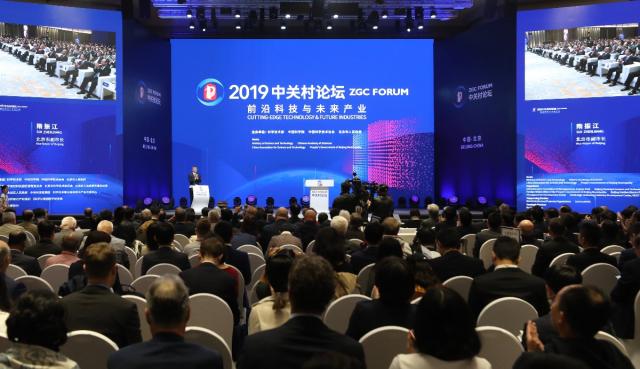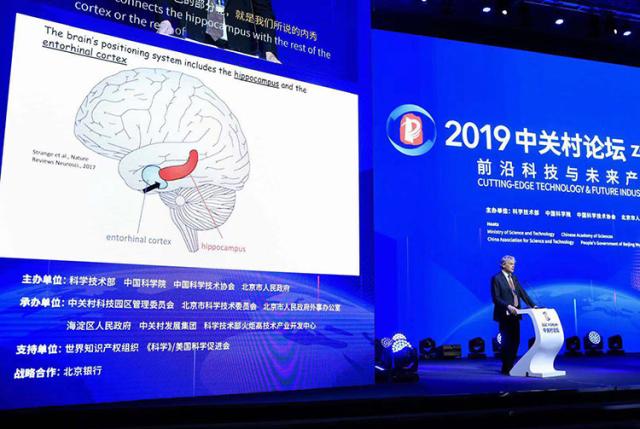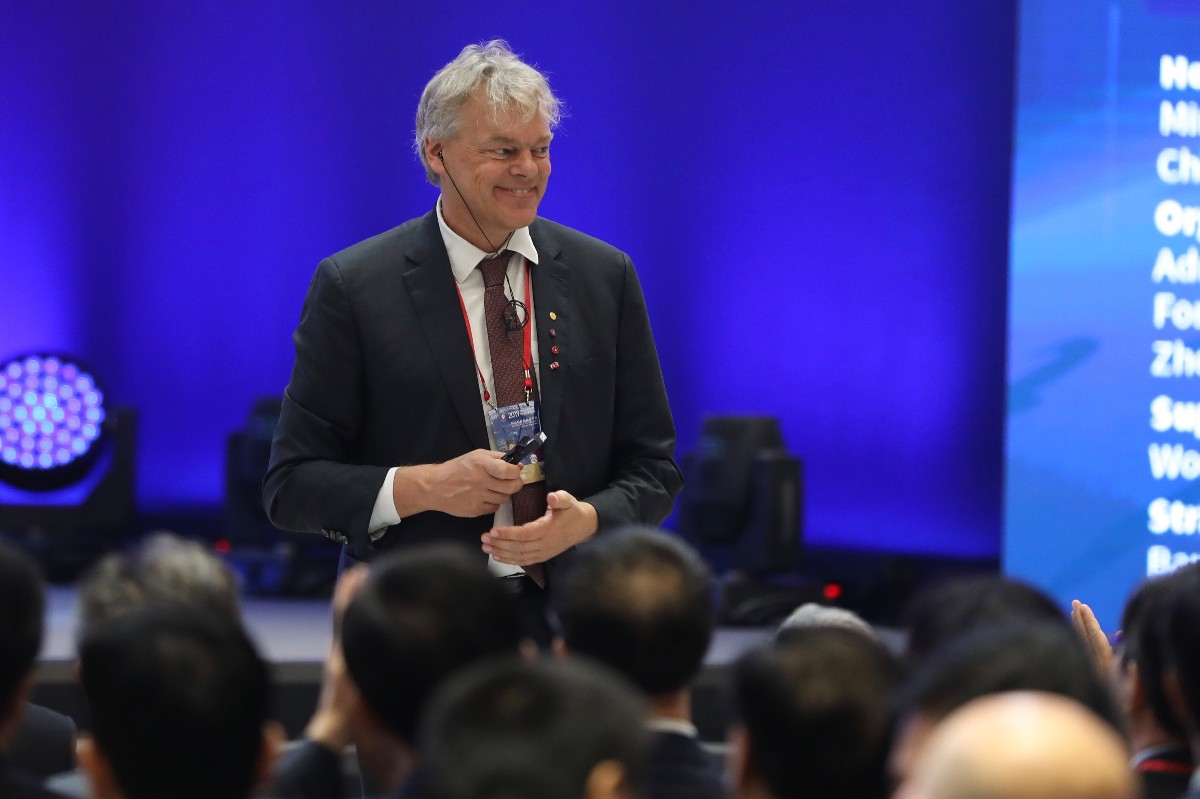
From October 16 to 18, the 2019 Zhongguancun Forum was held at the Exhibition Center of the Zhongguancun National Independent Innovation Demonstration Zone in Beijing. Scientists, entrepreneurs and investors from 50 countries and regions, including the United States, Canada, Germany, the United Kingdom, France, Israel, Australia and Japan, will discuss the future trend of global science and technology and the development opportunities of emerging industries.
Edvard Moser, winner of the 2014 Nobel Prize in Physiology or Medicine, was invited to attend the forum to give a wonderful talk entitled: "GPS of the brain - Implications for the fight against Alzheimer's Disease."
When it comes to GPS, people must think that finding directions is a natural thing, and no one has thought about how the ability to locate and Orient is created and operated. In fact, localization is a very complex calculation in the brain, and there are many parts of our brain involved in localization, but two regions are most associated: the hippocampus and the entorhinal cortex.
The first research to help us figure out the brain's localization function was done by American neuroscientist John O 'Keefe. He found that there is a navigation-like system in the brain. Certain cells are activated at certain locations. John O 'Keefe called them place cells. The location in which they are activated is closely related to the environment, and John O 'Keefe believes that place cells play a very important role in enabling brain localization.

And what Moser did was get a deeper look at the entorhinal cortex, which is in the brain. According to their research, a new type of cell with a hexagonal structure is located in the entorhinal cortex, allowing the brain to calculate the exact distance of the location. Such a computing system is so accurate that it is far superior to place cells that the researchers compare it to GPS in the brain.
Moser said that a lot of the research started with an interest in the brain, and as the research went on, the results of these studies would be applied to society to solve the challenges facing society and make a contribution to society.
And one of those very important challenges is Alzheimer's disease, which is a disease that affects many people. These people can have very severe memory loss, and there has been a lot of hope that there will be some way to solve these diseases, and basic research will have an impact on these diseases.
Moser has been studying the brain for years, research that is crucial to understanding diseases like Alzheimer's, which is becoming increasingly common and a huge burden on society.
Numerous studies have shown that the entorhinal cortex is already shrinking in size and cells are already dying before the symptoms of the disease really show up, proving that the death of these cells has an impact on Alzheimer's disease. Moser hopes future research will help find ways to understand, solve, and even cure Alzheimer's in the future.

Moser stressed that age has a big impact on the prevalence of Alzheimer's disease, and that the incidence of Alzheimer's disease increases with age, and that 131 million people worldwide will have Alzheimer's by 2050.
"And by having high-tech components that help us understand the brain better, it's going to be very helpful to solve some of the major diseases like Alzheimer's disease, or some of the mental illnesses." "Moser said. In addition, this kind of research also has a very strong connection with AI, because the success of artificial intelligence is also using an algorithm similar to the brain, the computer learns based on its own experience, which is very similar to the human brain.
Moser said that the success of artificial intelligence will also help their research, and he believes that the relationship between the two is mutually beneficial, artificial intelligence is bound to promote rapid progress in brain science, but also bring greater benefits to neuroscience.